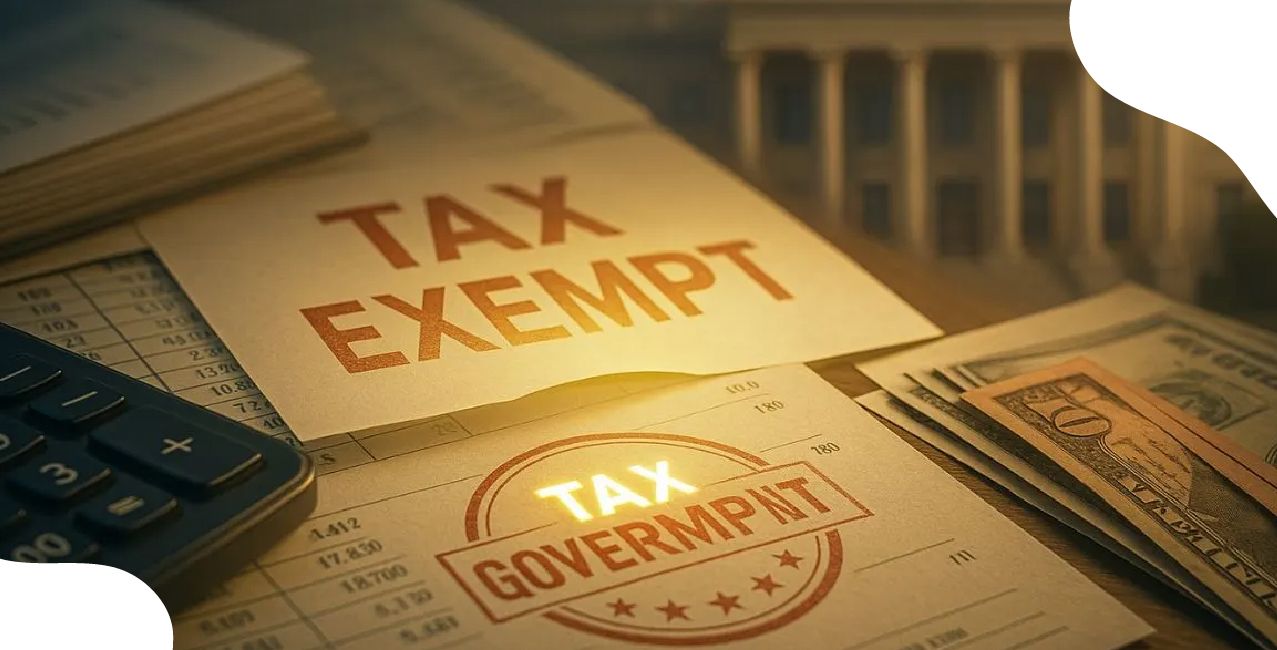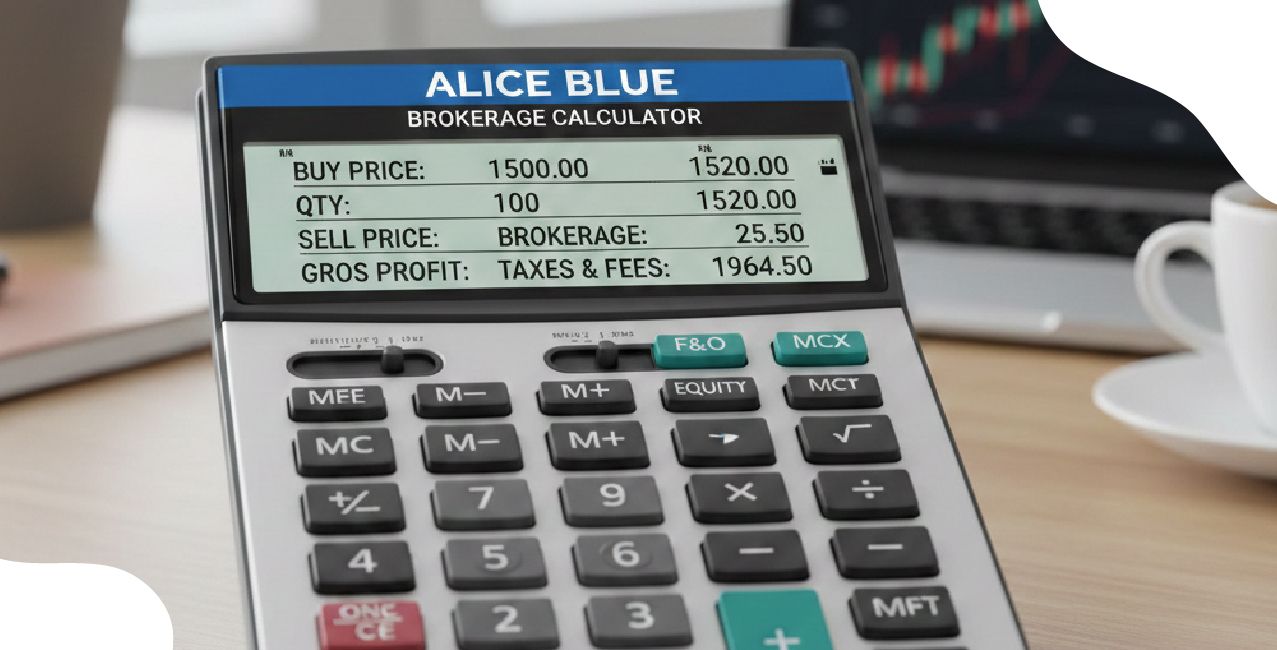Section 44AA of Income Tax Act – Tax Audit & Maintenance of Accounts

Check Your Loan Eligibility Now
By continuing, you agree to LoansJagat's Credit Report Terms of Use, Terms and Conditions, Privacy Policy, and authorize contact via Call, SMS, Email, or WhatsApp
- It's critical to maintain accurate financial records for tax purposes if your income exceeds ₹1,50,000 (or ₹2,50,000), as mandated by the Income Tax Act throughout India.
- Keeping books organised decentralises tax-related issues. It facilitates the tax filing process and helps to guarantee transparency.
- Effective cash flow management, ledger tracking, receipt handling, and inventory monitoring are all made possible by maintaining accurate records.
Certain professionals and businesses are required to adhere to Section 44AA of the Income Tax Act, which mandates the maintenance of accurate books of accounts to ensure transparent and organised finances.
Consider Pragati as a great example.
She has been an interior decorator for 15 years and ensures that her accounts are accurate. This helps her track her earnings, avoid fraud, and run her business more smoothly.
Keeping records under Section 44AA has several benefits for Pragati. Here’s a simple table showing how it helps her business:
By following these guidelines, Pragati ensures her business stays healthy and compliant!
This blog talks about why Section 44AA is essential and how it can benefit your business or profession.
Section 44AA of the Income Tax Act: Importance for Certain Businesses
Under Section 44AA of the Income Tax Act, 1961, certain businesses and professionals are required to maintain clear records of their income and expenses. This is crucial for maintaining transparency and adhering to tax regulations.
For instance, professionals such as doctors, lawyers, and engineers are required to keep records if they earn more than ₹1,50,000. Additionally, companies that earn over ₹2,50,000 and aren't utilising the simpler tax rules are required to maintain proper accounts.
Read More - Section 44ADA of Income Tax Act – Presumptive Tax for Professionals Explained
Businesses & Professionals Requiring Compliance
1. Lawyers
If lawyers earn more than ₹1,50,000 a year, they need to keep track of the fees they earn from each case and any associated costs, such as court fees.
Example: Advocate Priya makes ₹4,00,000 a year. She records what her clients pay her, how much she spends on legal research, and her office bills.
2. Doctors
Doctors earning over ₹1,50,000 must keep records of consultation fees, surgery costs, and medical supplies.
Example: Dr. Raj's clinic makes ₹6,00,000 a year. He tracks patient fees, medicine costs, and equipment maintenance.
3 . Engineers
Engineers who charge more than ₹1,50,000 for their consulting work need to document their earnings and expenses.
Example: Civil engineer Arjun earns ₹5,00,000 a year. He keeps track of project contracts and travel costs.
4. Architects
Architects earning over ₹1,50,000 should log their design fees, material costs, and client deposits.
Example: Architect Neha brings in ₹3,00,000 a year. She records her blueprint fees and materials needed for projects.
5. Interior Designers
If interior designers earn more than ₹1,50,000, they must track client payments, material purchases, and labour costs.
Example: Decorator Riya makes ₹8,00,000 a year. She logs expenses for furniture and contractor fees.
6. Accountants
If accountants or auditors make over ₹1,50,000 a year, they need to maintain records of their fees and office expenses.
Example: CA Mehta's firm earns ₹10,00,000. He tracks fees for audits and staff salaries.
7.IT Consultants
IT consultants who make more than ₹1,50,000 must record their service fees and software costs.
Example: Tech consultant Vikram earns ₹7,00,000. He keeps track of coding project fees and travel expenses.
8. Tax Agents
Tax agents assisting clients should record their service fees and any related filing costs.
Example: Tax agent Rohit charges ₹2,00,000 a year. He maintains records of client filings and consultation fees.
9. Actors and Directors
Actors or directors earning over ₹1,50,000 must track their earnings, costume costs, and promotional expenses.
Example: Actor Karan makes ₹15,00,000 a year. He records fees from his movies and costs for makeup and events.
Section 44AA helps professionals and businesses keep track of their money and makes tax filing easier, regardless of whether you're a doctor, engineer, or artist.
Now that you know who must follow Section 44AA, let's explore which book of accounts must be maintained.
(Note: Need a hand with your tax filing? Don't stress! Reach out to a Chartered Accountant and get personalised advice that's tailored just for you! )
Objective of Section 44AA of the Income Tax Act
Section 44AA's primary goal is to guarantee accuracy and transparency in financial reporting by requiring certain professionals and companies to keep organised books of accounts.
This reduces the likelihood of fraud or inconsistencies, facilitates accurate income calculation, and streamlines tax assessment.
For instance:
Sonu, a freelance graphic designer earning ₹5,00,000 a year, keeps a close eye on client payments, software costs, and office expenses. Staying organised helps him meet tax requirements and dodge any penalties.
Table:
The table below outlines the essential records Sonu must maintain to adhere to Section 44AA:
Let's now examine the Documentation of the Account Needed, as per Section 44AA, given our understanding of its goals and requirements.
Documentation of Accounts Needed as per Section 44AA of the Income Tax Act
According to Section 44AA, if you're a professional or business and earn more than certain amounts, you need to keep specific financial records. This helps you calculate taxes correctly and follow the rules.
Also Read - Kissandhan’s ₹3,244 Crore Revolution: How One NBFC is Reshaping Rural India
Example:
- Akash is a freelance architect who makes ₹4,00,000 a year. He needs to keep a cash book, ledger, and all his receipts.
- Amber is a doctor earning ₹6,00,000 a year. She also needs to keep a daily case register (Form 3C) and a medicine inventory.
Required Documentation Under Rule 6F of the Income Tax Rules
This table shows you which documents are essential:
The table illustrates the requirements for different professionals to maintain their books in accordance with Section 44AA.
By following these rules, you can avoid penalties and make tax time easier. Whether you're a doctor like Amber or a consultant like Akash, keeping good records is essential!
Exemption under the Income Tax Act's Section 44AA
Small taxpayers whose income and turnover stay below certain thresholds are exempt from Section 44AA's requirement that certain professionals and businesses keep books of accounts.
Example: Rina’s Case
Rina makes ₹1,80,000 a year as a freelance graphic designer. She is exempt from keeping detailed books under Section 44AA because her income is below the allowed threshold. She still maintains basic expense logs and invoices for her own tracking, though.
Table: Who Gets Exemption under Section 44AA
The table illustrates how Section 44AA exemptions are designed to protect small taxpayers from unnecessary compliance while promoting basic record-keeping.
The next section is the overall conclusion of the blog.
Conclusion
Maintaining accurate records is not only required by law but also prudent. Having clear financial records makes life easier, whether you're an architect like Akash, managing fees and expenses, or a doctor like Amber, handling patient files and inventory.
It helps you avoid penalties, saves you time, and eases your stress during tax season. Additionally, trustworthy records increase confidence with banks, tax authorities, and consumers. You can stay legal and position yourself for a secure financial future by adhering to these guidelines.
FAQs
Who can conduct a tax audit under Section 44AB?
Only a Chartered Accountant holding a valid Certificate of Practice (COP) can conduct a tax audit as per Section 44AB, as per Section 288(2).
What provision is stated in section 44AB?
Section 44AA outlines the requirements for maintaining records of a taxpayer's books, while Section 44AB explains when an audit must be conducted or when a taxpayer is required to submit an audit report.
What are Section 44AA and Section 44AB?
Section 44AA outlines the requirements for maintaining records of a taxpayer's books, while Section 44AB explains when an audit must be conducted or when a taxpayer is required to submit an audit report.
For how long do I need to preserve these books of accounts?
As per the Income Tax Act, you must preserve these books of accounts and documents for at least 6 years from the end of the relevant assessment year. For example, books for FY 2023-24 (AY 2024-25) must be kept until at least March 31, 2031.
Other News Pages | |||
About the author

LoansJagat Team
Contributor‘Simplify Finance for Everyone.’ This is the common goal of our team, as we try to explain any topic with relatable examples. From personal to business finance, managing EMIs to becoming debt-free, we do extensive research on each and every parameter, so you don’t have to. Scroll up and have a look at what 15+ years of experience in the BFSI sector looks like.
Subscribe Now
Related Blog Post
Recent Blogs
All Topics
Contents
Quick Apply Loan
Consolidate your debts into one easy EMI.
Takes less than 2 minutes. No paperwork.
10 Lakhs+
Trusted Customers
2000 Cr+
Loans Disbursed
4.7/5
Google Reviews
20+
Banks & NBFCs Offers
Other services mentioned in this article








